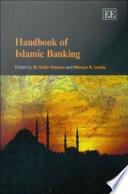Theory, Analysis, Strategy
New insights and a provocative perspective characterized this book by Professors Welch, Benito, and Petersen. . . Managers will find the framework of this book very appealing and relevant to their everyday international efforts and inquiries. The book is mandatory reading for academics and graduates in business, international marketing, and international business. Carlos M. Rodriguez, International Marketing Review Numerous books and articles on entry strategies and entry modes explain why companies choose a certain mode and how companies should enter foreign markets. This book, however, deals with the strategic decision making process when deciding which mode to use on entering a new market. The approach in this book is novel in that it discusses and suggests how companies can use a mixed mode approach to achieve success in foreign markets. Moreover, it deals with issues such as how and when to move from one mode to another, which has always been an important question for firms as well as for scholars. To summarize, this is a timely publication which, based on solid theoretical grounding, provides excellent guidelines for managers formulating strategies to enter new markets, as well as expanding their operations in foreign markets. Pervez N. Ghauri, Manchester Business School, University of Manchester, UK Also known as entry modes or foreign market servicing methods , foreign operation methods are critical criteria for companies ability to function in the international business arena. This comprehensive and accessible textbook explores the characteristics, choice, utilization and management of foreign operation methods. The book provides an extended analysis of the various foreign operation mode options, including those that have, until now, received relatively cursory treatment. Issues such as international licensing, franchising, outsourcing, project operations and management contracts are also discussed. In addition to providing an overview of the various theoretical perspectives on foreign operation mode choice, a treatment of emerging strategy concerns such as mode combinations and mode switching is included. Featuring a thorough overview of the various theoretical perspectives on foreign operation mode choice and use, and treatment of emerging strategy concerns such as mode combinations and mode switching, this textbook provides a somewhat broader coverage of foreign operation methods than current literature has offered until now. It will prove invaluable for a wide-ranging readership encompassing undergraduate and postgraduate students, academics and practitioners in the field of international business.
-
ISBN 13 : 1847208878
-
ISBN 10 : 9781847208873
-
Judul : Foreign Operation Methods
-
Sub Judul : Theory, Analysis, Strategy
-
Pengarang :
Lawrence S. Welch,
Gabriel R. G. Benito,
Bent Petersen,
Gabriel R. G. Benito,
Bent Petersen,
Gabriel R. G. Benito,
Bent Petersen,
Gabriel R. G. Benito,
Bent Petersen,
Gabriel R. G. Benito,
Bent Petersen,
-
Kategori : Business & Economics
-
Penerbit : Edward Elgar Publishing
-
Bahasa : en
-
Tahun : 2008
-
Halaman : 462
-
Google Book : https://play.google.com/store/books/details?id=yUlTkfutK2UC&source=gbs_api
-
Ketersediaan :
national interest, as in the Ethiopian government's role in the banking management contract noted above. Because of the strong government interest, inevitably there is a potential for interference in the contract venture's activities ...










